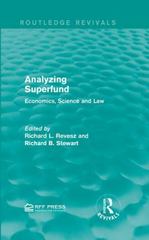Question
Argentina's debt woes: lessons for other nations? T he 1990s were years of economic growth for Argentina, but much of the development was funded by
Argentina's debt woes: lessons for other nations?
The 1990s were years of economic growth for Argentina, but much of the development was funded by overindulgence in borrowing in international capital markets. The country accumulated sovereign debt liabilities on a colossal scale, issuing over a hundred types of bonds in numerous currencies and in numerous jurisdictions. Some were issued to institutions, but many were issued to private investors, including ordinary Argentinians. Unable to meet repayments, Argentina defaulted on nearly $100 billion in sovereign debt in 2001, following which the currency was devalued. For millions of Argentinians, the consequences were disastrous: their savings were wiped out, poverty levels soared, and unemployment was in the range of 20%. The crisis was both economic and social (Stiglitz and Guzman, 2014).
Agreements with 93% of the bondholders were achieved in 2005 and 2010, by which they would receive about 30% of the face value, known as a restructuring, or 'haircut'. This could have led to a resolution of the country's debt problems. However, a number of 'holdout' creditors, amounting to about 7% of the total, were outside these agreements. These holdout creditors were hedge funds, led by NML Capital, which had bought Argentine bonds in the aftermath of the country's 2001 financial crisis. These creditors, often referred to as 'vulture' funds, mounted numerous legal battles for full payment. The holdouts were confident in the strength of their legal case. They obtained numerous awards of damages in the US civil courts, although these were not paid by Argentina. NML followed up with claims abroad to have Argentine assets seized, some of which seemed bizarre. In 2012, an Argentine three-masted sailing ship was detained in Ghana at the behest of NML. Argentina applied to the international tribunal of the law of the sea, which ruled that the ship should be released because of its sovereign immunity as a vessel in the Argentine navy.
In a court case in New York in 2014, the judge, Thomas Griesa, held that payments by Argentina to the holders of the restructured bonds was illegal, as the holdout creditors were entitled to full payment. By 2014, the full face value plus interest amounted to $1.5 billion. NML had bought $48 millions' worth of bonds in 2008, and stood to be paid $832 million: a return of 1,600%. Failing to pay the holdouts would mean that Argentina was in default. Argentina had attempted to pay the holders of the restructured debt their latest interest payment, but this was barred by Judge Griesa. Had Argentina paid the holdouts, it would have breached a clause in the restructured bonds, which states that Argentina cannot give a better deal to any creditors than the 30% deal that they had agreed. Triggering this clause would have involved paying the whole money due to all. The total could have amounted to $140 billion. Argentina's then-president, Cristina Fernandez de Kirchner, argued strongly against what she felt was the bias of the US court, maintaining her resistance to paying the holdouts. The country thus defaulted again, at a time when it needed to be able to access international credit in order to develop its huge shale gas reserves.
The political tide turned with the election in 2015 of a new centre-right president, Mauricio Macri, who wished to see settlement with the holdout creditors. An agreement with four leading holdout hedge funds was reached in 2016, which paved the way for an agreement with all of them. The deal was approved by Argentina's legislators, enabling the country to access international capital markets after the long period of legal battles with holdout creditors.
The experience of Argentina demonstrated the power of the hedge funds in pursuing sovereign borrowers. Sovereign borrowers would henceforth be keen to avoid US financial institutions, as bonds issued under US law would run the same risks as Argentina faced with holdouts. The IMF was concerned that the US judgment would make it difficult in future to restructure sovereign debt, and it proposed that a clause should be included in bond agreements to exclude the obligation to pay holdout creditors. It also recommended a 'collective action clause', which would compel all creditors to go along with a restructuring if 75% of them agree. The country issuing the bonds would have to incorporate these changes. These changes, while modest, would be a step forward. But why not create an international sovereign bankruptcy court? The IMF had suggested this in 2001, but met with lukewarm reception. Following the experience of Argentina, there could be more support. In national law, businesses and individuals that fall deeply into debt can reach arrangements that allow them to get back on their feet. In principle, the same could apply to states.
In 2015, the UN General Assembly passed a resolution supporting a country's right to restructure its sovereign debt without fear of resistance from minority creditors and judgments in foreign courts. The resolution was an initiative by a group of 77 developing countries. Although non-binding, the resolution was approved by 136 countries. Among those that voted 'no' were the US and Britain.
kindly answer these questions
To what extent did Argentina's government mismanage its sovereign debt? The hedge funds in the case study, led by NML, stood by their strict rights in contract law, but what is the ethical case against them? Should there be a new global framework for allowing the restructuring of sovereign debt? The US and UK voted against the UN resolution on sovereign debt restructuring in 2015. Why?
Step by Step Solution
There are 3 Steps involved in it
Step: 1

Get Instant Access to Expert-Tailored Solutions
See step-by-step solutions with expert insights and AI powered tools for academic success
Step: 2

Step: 3

Ace Your Homework with AI
Get the answers you need in no time with our AI-driven, step-by-step assistance
Get Started


